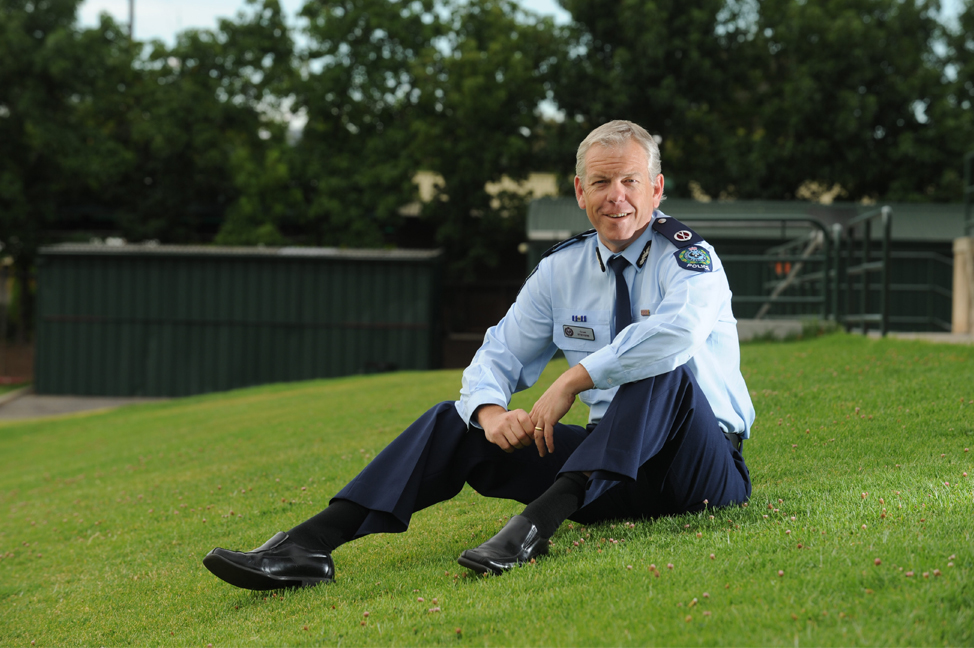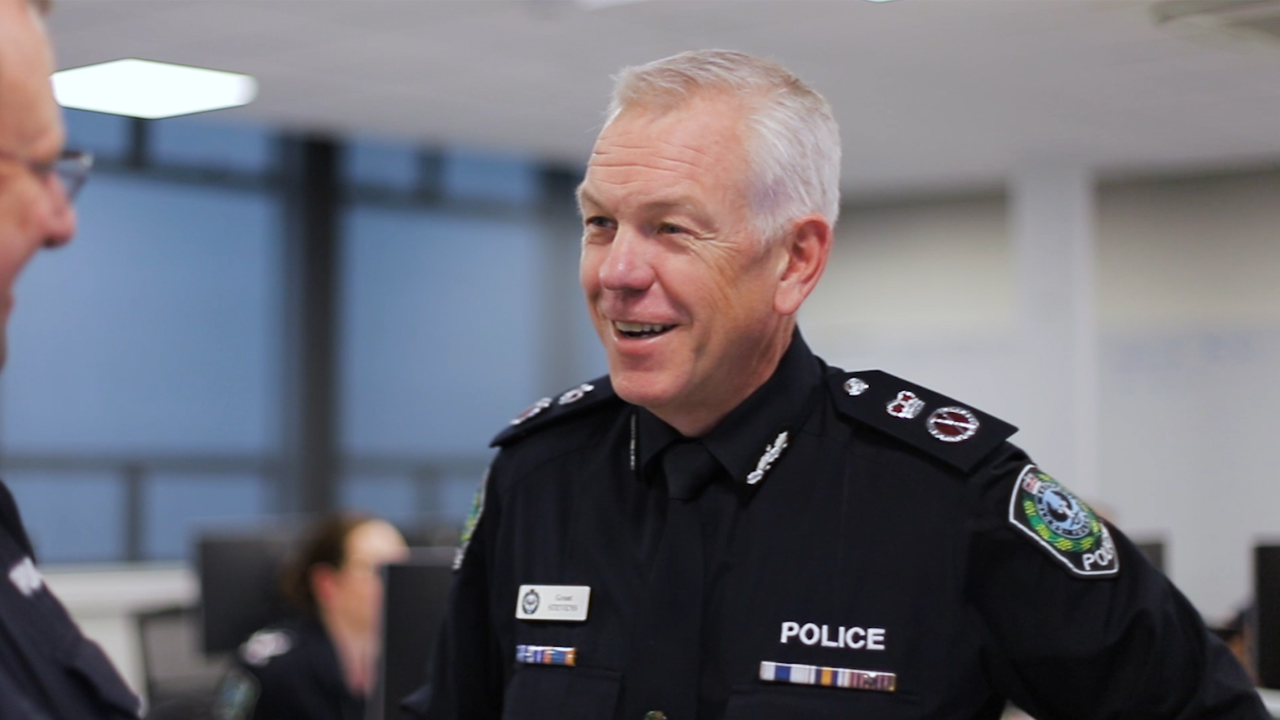30 October 2021

Commissioner of the South Australian Police Grant Stevens APM LEM
Bachelor of Accountancy
These past 18 months Commissioner of the South Australian Police Grant Stevens APM LEM has been a fixture on our screens.
At the helm of the State’s COVID-19 emergency response, Commissioner Stevens has been a reassuring authority guiding us through this time of disruption and uncertainty, his presence a welcome reprieve.
“I’ve reflected on the role I’ve played in the pandemic response, and I suppose it’s fair to say I’d never envisaged that this would have been part of the obligation I would have to meet as the Commissioner of Police,” Commissioner Stevens says.
“It’s been a challenge and it’s been a testing environment for everyone involved, but I couldn’t imagine not being able to have some level of influence or ability to support South Australia. I’ve been given that chance and I feel privileged to have done it.”
While such a role commands a certain kind of respect, any sort of intimidation is immediately defused by the Commissioner’s dead pan sense of humour and good-natured interactions with colleagues and people around him.
This outlook, he says, has always been part of his coping mechanism when so much of his job has been confronting some of the worst of human nature.
As essentially the Chief Executive of the South Australian Police (SAPOL), in charge of 6,500 people and a budget of around about a billion dollars, Commissioner Stevens is running an organisation responsible for ensuring the safety and security of South Australia, South Australians and people who visit our state.
Now, after almost four decades in the organisation, and 15 years as a senior executive, Grant has been in the South Australian Police’s top job since July 2015.
Emerging from what he describes as an ordinary upbringing to one of the most powerful figures in the South Australian community, has surprised no one more than himself.
Relatively directionless throughout his adolescence, Commissioner Stevens says he didn’t particularly excel in school either. On a Saturday afternoon sorting socks during stocktake at a large department store he had an epiphany that retail wasn’t for him.
Exploring other options, he stumbled upon policing.
Though he says it’s hard to pinpoint exactly what landed him on this path, it’s a testament to finding something you love and are passionate about.
“Throughout my schooling career, I was nothing inspirational. I wasn’t particularly motivated and didn’t apply myself very well, but that all changed when I found something that was worth studying for.”
After earning his Sergeant and Senior Sergeant’s qualifications with SAPOL, he embarked on a new adventure studying a Bachelor of Business (Human Resource Development) at the University of South Australia while balancing work and family life. A couple years later, he also earned a Graduate Certificate of Management.
While it seemed like the next logical step for the Commissioner in terms of where he wanted to head in his career, he notes how what he learnt during this time has become invaluable as a manager throughout SAPOL and served him well as he ascended within the organisation.
His achievements speak for themselves as he has personally led and delivered some of SAPOL’s most significant programs, including national outlaw motorcycle gang enforcement, specialist sexual crimes investigations, and service reform initiatives around frontline service delivery and demand management.
He is also regarded for his work in enhancing SAPOL’s domestic violence response and for his commitment to gender equality and eliminating sexual harassment and discrimination in the workplace.
Commissioner Stevens highlights his time with the Drug Task Force, investigating high level drug trafficking, as a particularly memorable time. Being involved in both complex and interesting investigations was gratifying, but the bonds and friendship that were formed throughout that time have been just as rewarding.
The Commissioner says one of the most significant and proudest achievements of his entire career was the opportunity to establish the Paedophile Task Force and serve as Officer-in-Charge.
The group investigated historical sex crimes against minors – with many men coming forward well into their 50s and 60s to report these crimes – and were able to enact law changes and get outcomes for people who felt like they’d been let down by the legal system.
Standing at the podium as one of our foremost authorities on how to navigate through an extraordinary global pandemic – armed of course with his trademark wit – it’s clear all of these experiences have contributed to the trusted guiding light he has been throughout the disruption and uncertainty. Ever humble, he insists that it’s been a team effort.
“I continue to be impressed with the South Australian community and the way they’ve accepted the restrictions we’ve had to impose on our community,” says Commissioner Stevens.
“There’s a team effort in responding in the pandemic, but that team includes the South Australian community, and they’ve played a really important role. I’m proud to be a South Australian.”





